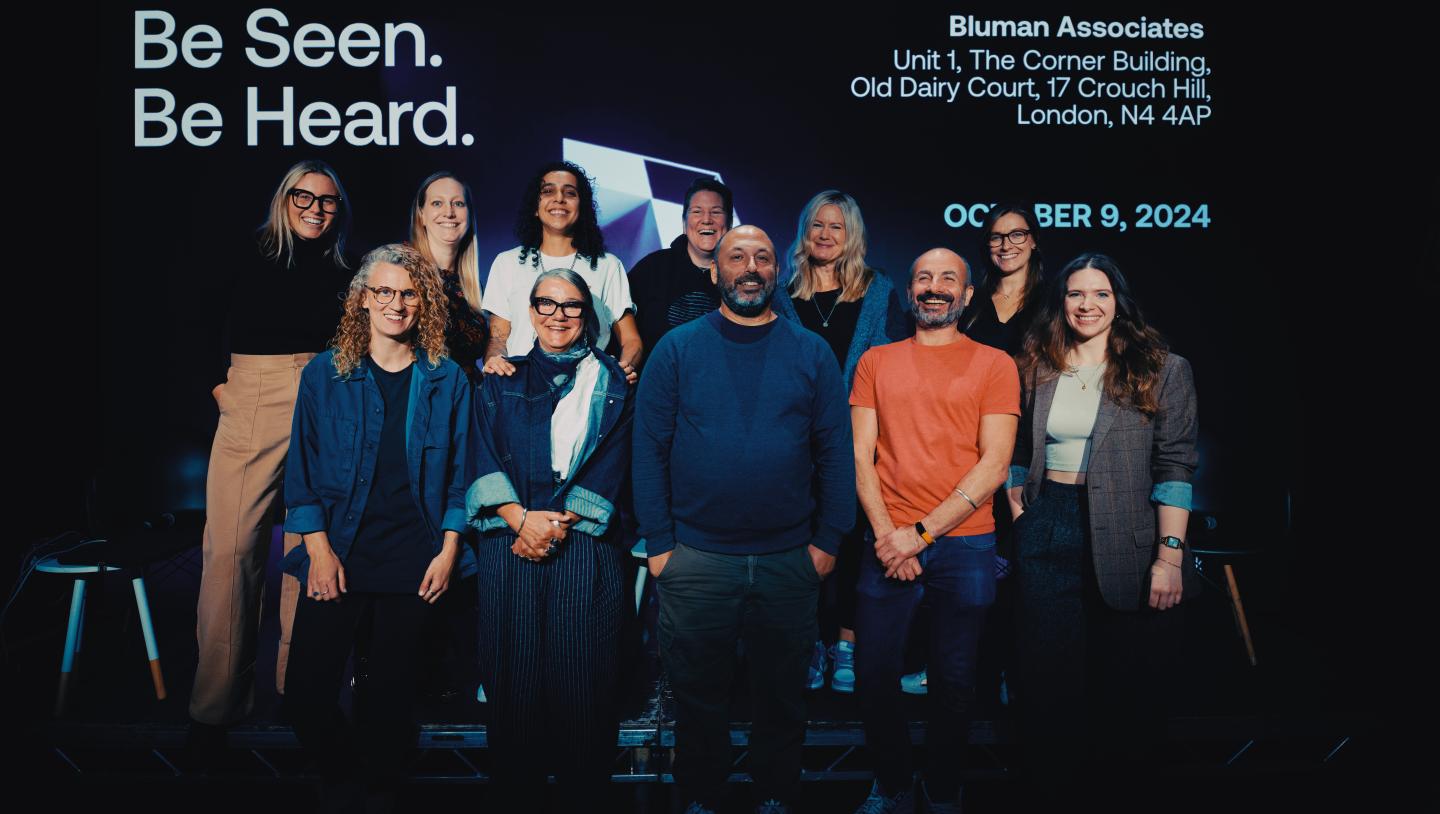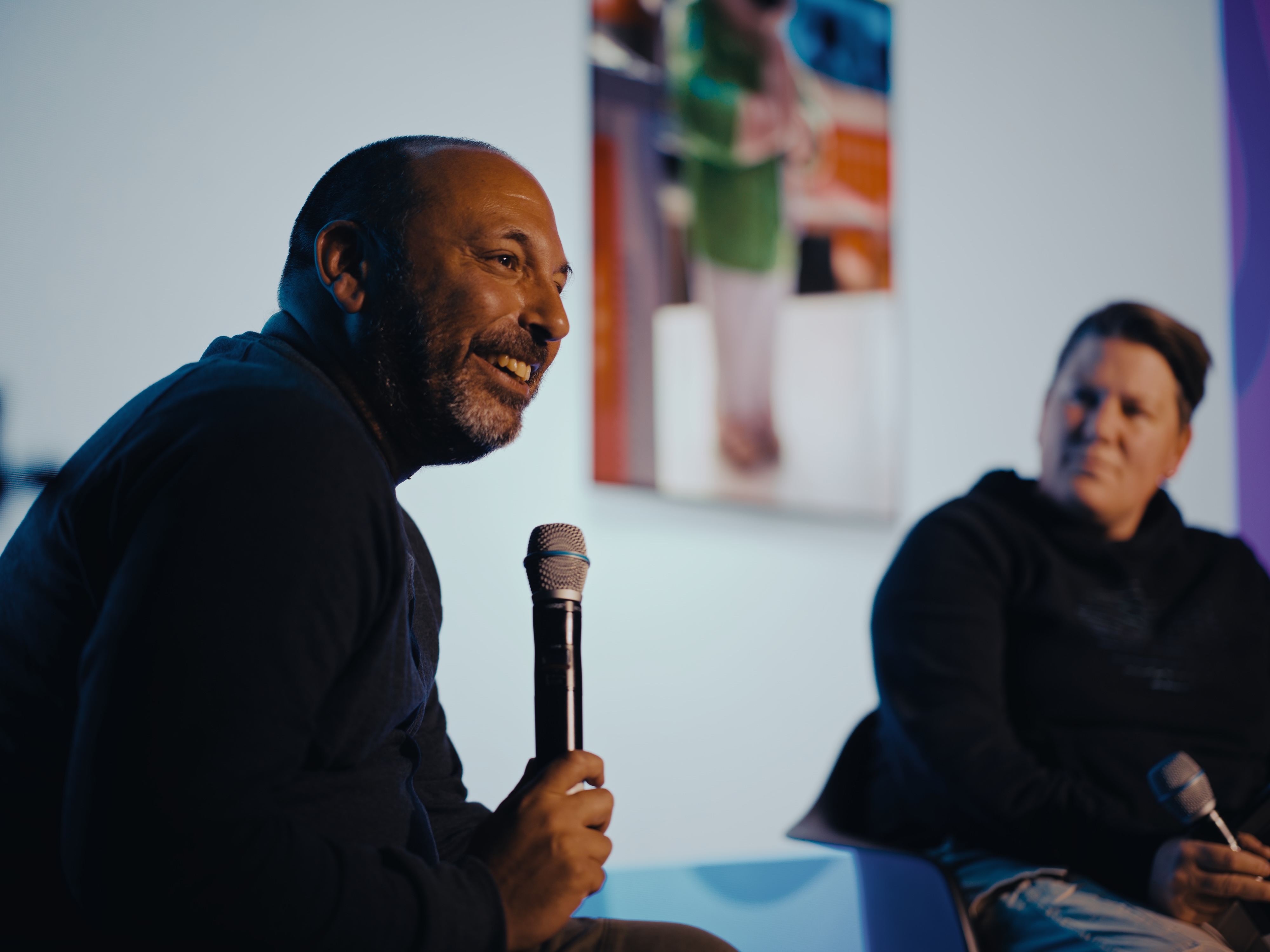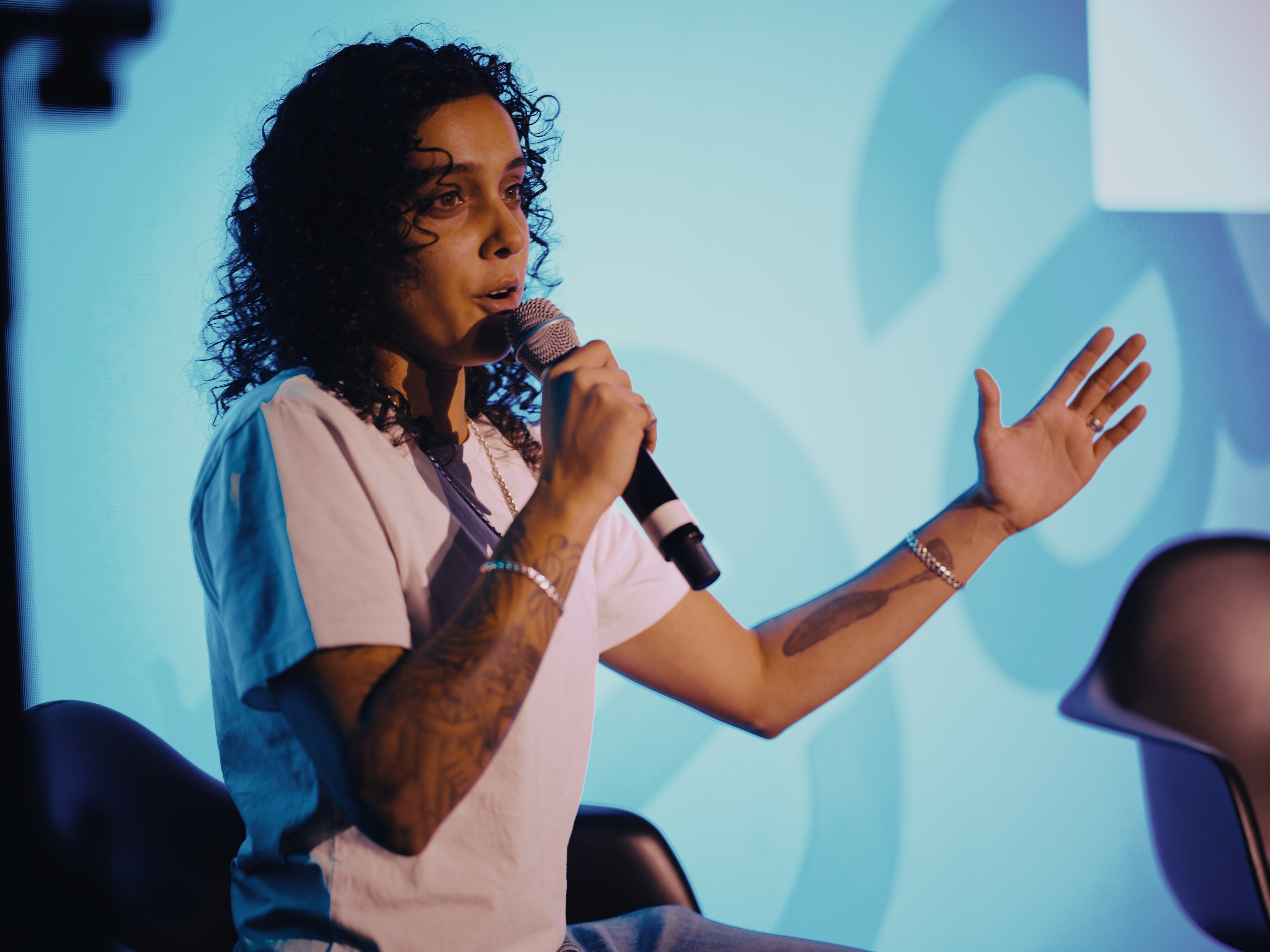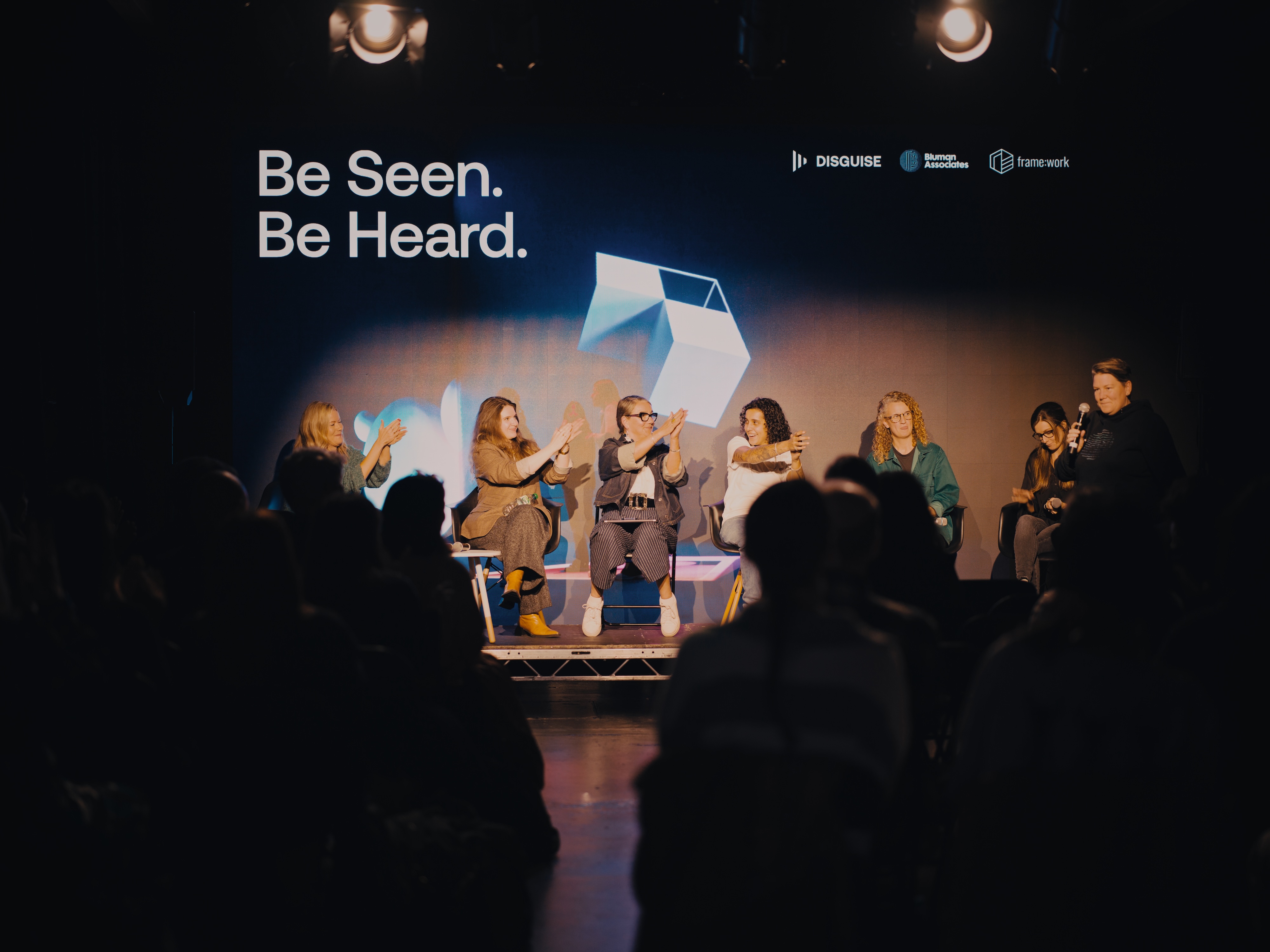"Be Seen. Be Heard", the start of an ongoing dialogue
Company

“Be Seen. Be Heard” shed a powerful light on the critical importance of fostering diversity and inclusion within our industry, also supported by Bluman Associates and the European chapter of Frame:work.
Earlier this month, Disguise, in collaboration with Bluman Associates and the European chapter of frame:work, hosted ‘Be Seen. Be Heard’, an event dedicated to making our industry more representative of the population at large, and create a safe space for attendees to listen and share ideas on how we can overcome these challenges.
The event began with a welcome keynote from Pod Bluman, Founder of Bluman Associates, Laura Frank, Screens Producer and frame:work Co-founder, and Sarah Cox, Founder of Neutral Human and Board of Directors at frame:work. The rest of the event consisted of two keynotes by Ashraf Nehru (Ash) and Pembe Tokluhan, followed by a panel discussion on ways to address common industry barriers and promote diversity.
“This event isn’t necessarily a solution to the lack of diversity in the industry, it’s the start of an ongoing dialogue,” said Pod Bluman. “We need to make this industry more attractive to younger generations—being more inclusive will be key in the next few years.”
Ash - meeting the right people at the right time
The first keynote was held by Ash, founder of Disguise. Ash discussed his career journey, from working for a small video game company, to powering some of the world’s largest live experiences. He mentioned that by taking risks, even when he felt like a lot of doors were closed to him, or that he didn’t fit in, he found great mentors and eventually found his way into the industry, and has been thriving ever since.
He acknowledged those in his life that have helped him get to where he is now—from school teachers to industry professionals. “You won’t recognise your mentor as you meet them,” said Ash. “You have to be open to meeting new people—the right people show up at the right time.”
When looking back at his career journey, Ash talks about how it may seem like a straight line, but in reality, he took multiple paths which felt unstable at the time. He also recognises the stresses that come with it, especially in terms of financial stability, the price of the equipment to get started or getting the right job—it’s not an easy path but it’s certainly worth the investment.

Pembe Tokluhan - creating a place of belonging
Pembe started her keynote by discussing her career, and how she had tried multiple different roles within the industry. She originally took music production classes, however, through her classes, she realised that she was more interested in the technical side of live shows instead of producing live music—and has been thriving in her career ever since.
Throughout her keynote, Pembe mentioned the importance of creating a network. When she first joined the AV industry, she struggled with representation as she would often be the only woman in her team. As a result, she created Petok Productions, a company dedicated to removing barriers and increasing the representation of women, trans and non-binary working professionals behind the scenes, screen and lens.
“Your network is your net worth,” said Pembe. “I couldn’t find my tribe at first, so I created my own network.” Through her network, Pembe has now worked on some incredible projects with companies such as FIFA and RedBull.

Panel discussion - overcoming industry barriers
To wrap up the event, we held a panel discussion with Hannah Eakins, CEO at Production Futures, Pembe Tokluhan, Founder of Petok Productions, Sarah Ruston-Read, Creative Director at the Fifth Estate Ltd, Kira May O’Brien, Creative Technologist at FRAY Studio, Connie Glover, Creative Technology’s Head of Film and Entertainment and Emily Malone, Head of Live Events at Disguise. From this conversation, we learned that most of us have had our experiences held back by some sort of unconscious bias.
One of the biggest takeaways from this panel discussion was the lack of visibility of careers within the live events and creative video industry for younger generations. While schools often expose children to more traditional jobs, enhancing visibility of the industry for younger generations through social media platforms such as TikTok or Instagram would be a great way to address this barrier.
Another major takeaway was the issue of gatekeeping knowledge which prevents many new joiners from learning. Knowledge is power, especially in this industry, so many working professionals prefer to keep their knowledge to themselves. For instance, being more transparent about pay would help industry professionals address pay gap issues, or being more open to sharing information could help teams perform better—if everyone keeps their knowledge to themselves, then the industry can’t truly evolve.
Being part of the community is a great way to address some of these barriers—this is how we can enable knowledge sharing, become more inclusive and create a safe space for everyone. “Community is such an important aspect of this industry,” says Emily Malone. “You need to get involved with the community because that’s the best part of the industry.”

“Be Seen. Be Heard” illuminated the pressing need for diversity and inclusion within the industry. While barriers like gatekeepers, long hours, a male-dominated culture and a lack of visibility remain significant challenges, this event created a supportive environment for individuals to openly share their experiences and form meaningful connections.
While we may still have a long journey ahead to achieve true inclusivity, last week’s event sparked the essential dialogue needed to drive meaningful change. It marked the beginning of a collective effort to reshape the future of our industry.
Organisations mentioned during the event:
Touring Community Wellness Guide
Music Industry Therapist Collective